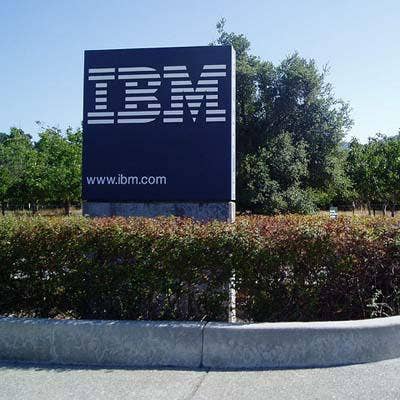5 Companies That Had A Rough Week

This week's roundup of companies that had a rough week includes Apple cutting iPhone 5C orders after less than a month, IBM reporting a drop in revenue and Samsung losing a court decision. Also, United.com suffers a major website glitch and BlackBerry pens a 'you can count on us' letter.

Apple made a big splash last month by introducing not one, but two iPhones. The sleeker, more expensive iPhone 5S is continuing to sell quite well. The more cost-friendly iPhone 5C is not. Thus, Apple is reportedly trimming orders for the iPhone 5C in the fourth quarter, according to The Wall Street Journal.
Retailers such as Wal-Mart already have cut prices for the 5C, despite the phone being on the market for less than a month. A recent study from Consumer Intelligence Research Partners reported 5S orders outpaced 5C orders by a 2-to-1 margin.
This news can be looked at as a positive, some analysts say. If more people are choosing the more expensive 5S over the 5C, it's more revenue for Apple.

In what Senior Vice President and CFO Mark Loughridge called "a tough quarter for us," IBM Wednesday reported its year-over-year revenue declined 4 percent for its third fiscal quarter. Despite profit growth, Wall Street investors drove IBM's stock price down 5 percent in after-hours trading.
IBM put blame on the China market as well as weak hardware sales. The company's Systems and Technology Group saw a 17 percent drop in revenue to $3.2 billion. Half of that drop was attributed to the China market.
It wasn't all bad news for IBM, however. Software and cloud revenue both increased and the company was not affected by the government shutdown, according to Loughridge.

The never-ending court drama between Apple and Samsung continued this week, and this time Apple earned the upper hand. Samsung lost a bid to block a previous ruling that required the company to produce information about its violation of a court order in the Apple patent case. A federal judge said that Samsung must provide Apple emails, communications among Samsung employees, and make available to Apple various witnesses because of its violation.
"In light of the fact that Samsung has been unable to produce satisfactory answers to any questions about the extent and use of the improper disclosures despite having three months to investigate, this court finds that it was necessary for Magistrate Judge Grewal to order court-supervised discovery and that the scope of his order was not overly broad," U.S. District Judge Lucy H. Koh wrote in her ruling.

For the second time in less than two months, travelers booking reservations through United Airlines were able to score tickets for next to nothing because of a loophole. Unfortunately for those travelers, unlike the previous glitch, United will be charging them full price.
Visitors to United.com Monday were able to "trick" the site by manipulating the amount of frequent flyer miles they have earned. Travelers who booked a reservation in two different tabs of a browser were able to redeem unlimited miles, thus driving down the cost of a ticket. For example, one roundtrip fare from Newark, N.J., to Dublin, Ireland, cost less than $50. A United spokesperson told The Huffington Post that the company would not honor the discounted tickets because of the "knowing manipulation of United.com."
A similar issue occurred last month where some lucky travelers were able to book flights for free. United honored those tickets.

BlackBerry's demise has been well documented and the company can't seem to catch a break in the smartphone wars. The company, in perhaps its last gasp before possibly getting acquired, printed an open letter in more than 30 news publications across nine countries, urging customers to stay on board.
"You can continue to count on BlackBerry," the company stated in the letter. The company also said that it has "substantial cash on hand and a balance sheet that is debt free."
BlackBerry is aiming to assure customers that its hardware, software and services technology are on solid ground. The company has lost significant market share to Apple and Samsung in the past few years, and cut 40 percent of its workforce last month.